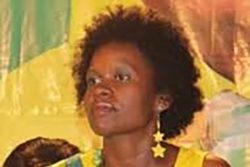Dear Editor,
If we are to really have sustainable development and sustainable growth as a country, we must transform our political culture. Part of the political culture in Guyana is whenever a new government comes into office, there is a tendency to abandon the policies and programmes from the previous government. While some of that is understandable, the time has come for the people of Guyana to draw the line on this approach, since in many cases, it results in a waste of massive sums of our money and delay our progress. Let us focus on GuySuCo.
Firstly, any business that found itself in the financial situation that GuySuCo was in by 2015, would have had to make some serious decisions. A decision was made to reorganize the sugar industry. Four estates were closed, and employees were laid off. However, despite this massive disruptive process, GuySuCo came up with a plan, and after four years of reviewing the approach to the sugar industry by this government, the APNU+AFC government had a better plan. The plan had two focus areas – Three operating estates and a diversification programme for the four closed estates. This letter will focus on the plan for the three operating estates.
Four estates were closed, Wales, East Demerara, Rose Hall and Skeldon, and the company continued to operate three estates, Uitvlugt, Blairmont and Albion. The plan was to produce 143,000 tons of sugar per year by 2021. The canes were to be grown by GuySuCo and cane farmers. I personally worked with my colleagues on drafting a new Sustainable Business Model and a Strategic Plan. The new Sustainable Business Model focused on the economic, social and environmental aspects of the company and sought to integrate all of the company’s activities into a new business model.
On the economic side, the three operating estates Uitvlugt, Blairmont and Albion will produce and supply the local, regional and international markets with brown sugar. However, the Caribbean region imports over 200,000 tons of white sugar annually and GuySuCo, under the APNU+AFC government, planned to produce about 50,000 tons of white sugar and had engaged with another sugar production company in the region that had the capacity to produce white sugar also. GuySuCo was already engaging Caribbean trade organisations and the Ministry of Foreign Affairs and International Cooperation for a forty percent Common External Tarriff (CET) to be placed on white sugar entering the region, as well as exploring local and other markets for the white sugar. This would have required remodeling one or two of the estates to produce brown and white sugar while continuing to producing other products, such as molasses.
Another economic activity in the new Business Model and Strategic Plan was sugar tourism. The then management developed a ‘Cultural Heritage (Sugar) Tourism Strategy’ as a new business line. I authored that draft tourism strategy in collaboration with other management colleagues. Since the sugar industry was being reorganized with estates being closed and sugar is fundamental to the history of Guyana and Guyanese, the management at the time sought to ensure sugar’s history was captured and retained in a structured and systematic way. Additionally, under the Laws of Guyana, Chapter 20:03, the National Trust Act makes provision for the preservation of monuments, sites, places and objects of historical interest and national importance and the ‘Cultural Heritage (Sugar) Tourism Strategy’ focused on capturing the experience of places, artefacts and activities that authentically represent the stories and people from the sugar industry in Guyana, both past and present.
The intention was to include irreplaceable historic, cultural and natural artefacts from the sugar industry both past and current. The ‘Cultural Heritage (Sugar) Tourism’ programme was developed within parameters outlined under the United Nations Educational, Scientific and Cultural Organization’s (UNESCO’s), World Heritage and Sustainable Tourism Programme, as well as national guidelines. GuySuCo was reconfiguring the three operating estates to be production sites for sugar and other products and services, as well as tourism sites. The company had already started to charge a fee of US$50.00/G$10,000 per person for visits to these sites. Of course, the school tours would have continued free of cost.
On the social side, the company developed the Sustainable and Resilient Communities Programme (S&RCP) which was divided into three components: Economic Resilience, Social Resilience and Environmental Resilience. The Economic Resilience component included the Alternative Livelihoods Programme where employees who were being laid off were provided with opportunities to be reskilled and for employees within the company, the focus being on upskilling them. The Social Resilience component was aimed at building a network and the capacity of individuals, groups and organisations within these communities dependent on sugar, to provide psychosocial support to ex-employees, as well as their families and residents. Therefore, even family members were trained under the programme. The Environmental Resilience component was focused on maintenance of drainage and irrigation systems in the communities where the three operating estates were located and where the estates were closed, that they were maintained during the transition period and integrated into the sustainability plan.
The production level of GuySuCo since 2020 has reduced substantially and this is unacceptable. The production for the first crop for 2024 is 6,737 tons of sugar, unbelievable! Albion estate used to produce 20,000 tons and Blairmont 15,000 tons in the first crop alone. Sugar is not dead, but politics does not produce sugar; good management and the right skills and expertise will. Many in the APNU+AFC government were too arrogant to listen to the management of GuySuCo, even though these were men and women with serious experience in the industry and management. This government came in with a lot of pomp and ceremony and indicated that they would turn around the sugar industry. GuySuCo is an organsation/company/business and a highly complex one, too. You cannot turn around an organization or company with arrogance, what is required is the right skills and expertise. The plans mentioned above are good plans for the sugar industry and they are still viable. The time has come for us as a people and country to stop playing political games with our people and organisations/institutions and become more performance-based.
Sincerely,
Citizen Audreyanna Thomas









